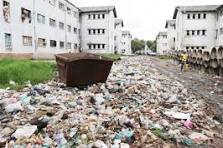Workshops Over Water Taps: Harare City Council’s Lavish Retreats Amid Service Collapse
- Southerton Business Times

- Aug 19, 2025
- 2 min read

Across Harare, sewage pools in streets, garbage piles unseen, and residents scramble days for drinking water. Yet, Harare City Council (HCC) continues to allocate significant resources to frequent luxury-hotel “workshops,” prompting criticism that finances aimed at basic services are being wasted on councillor comfiness.
Over the first six months of 2025, council financial summaries show at least nine separate “workshop” events held in hotels—with costs frequently topping US$200 per councillor per night. One seasoned councillor, under anonymity, disclosed:“Councillors often sign in, have breakfast, then nap. Their presence is recorded, but little else happens.”
Meeting venues ranged from Bulawayo’s upmarket precincts to resorts near Victoria Falls—settings generally unaffordable for ordinary ratepayers. A leaked internal memo outlining logistics for one retreat revealed line-items for “venue hire,” “meals,” “travel,” and “accommodation allowances”—but nothing for deliverables like improved infrastructure or action plans.
Meanwhile, residents in high-density suburbs such as Kuwadzana and Mabelreign report weeks without refuse collection. Sewer line blockages spew raw effluent into homes and thoroughfares, turning streets into hazards. The Zimbabwe Human Rights NGO Forum characterized conditions as “a slide toward uninhabitability.”
A Harare mother and small grocery operator shared:“I pay rates, but the garbage lies as if the council doesn’t exist. They’d rather spend on retreats than garbage pick-ups.” Council documents show external “workshop” costs at roughly US$450,000—while water-trucking operations for dry suburbs received a far smaller allocation of US$300,000. This budget misalignment has dismayed both residents and observers.
A policy analyst explained, “Workshops should be tools of efficiency, but here they’re detaching councillors from the urgency of service delivery.”
Persistent efforts by some reform-oriented councillors to rein in workshop costs have hit roadblocks. One opposition member lamented:“Proposals to conduct briefings locally or online were voted down. The official line is ‘face-to-face decision-making improves governance’—yet our sanitation remains broken.”
Residents associations say residents need to demand financial transparency and access-to-information protocols to request breakdowns of “workshop” expenditures. They also call on organised civic pressure through non-violent, unified ratepayer protests or social media campaigns that can draw attention and restrain wasteful spending. They should also promote alternative formats like hybrid meetings, local venues, or remote conferencing which offer cost savings without compromising oversight.
Harare’s “workshopping” culture hints at a troubling disconnection between council rituals and urban realities. For many residents, it is not the leisure of workshops that offends, but the neglect of vital essentials. Sewer fixes and water restoration are non-negotiable. If councillors cannot reallocate time and money to meet those needs, ratepayers will feel compelled to demand accountability more insistently.





Comments